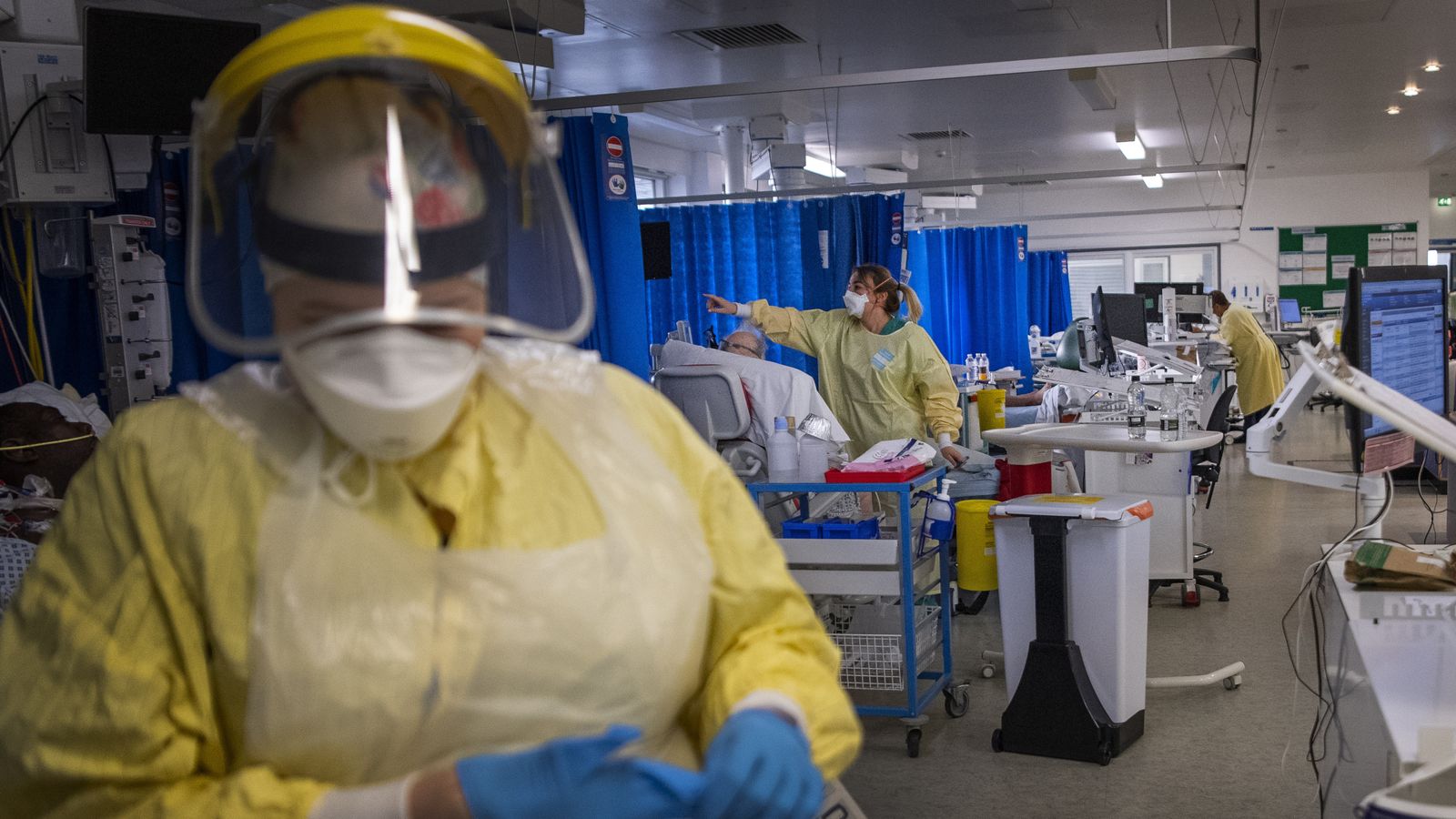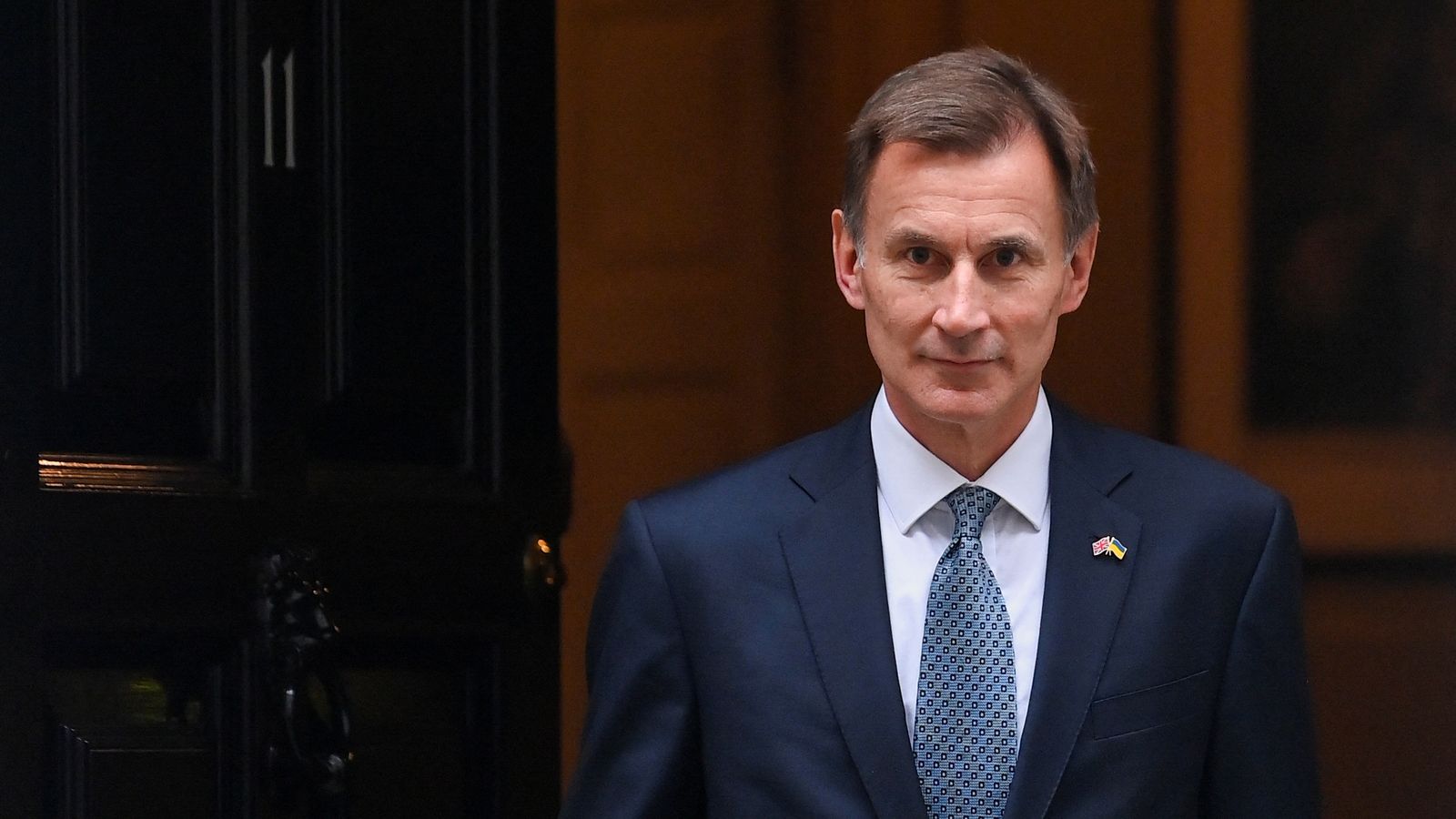A growing divide is predicted at this week’s local elections, with Labour on course to make gains in cities in England but struggling to breakthrough in former industrial heartlands.
Experts say there are “two elections” at play, predicting big urban areas could swing to Labour due to the cost of living squeeze and the partygate scandal; but Conservatives are more likely to hold on in towns, particularly in the North and the Midlands despite national headlines.
Sky News visited Wandsworth in southwest London, held by the Conservatives for 44 years but which could make a historic switch to Labour, and the town of Nuneaton in Warwickshire, where the council was seized by the Tories in a landslide last year, to speak to voters.
Local Elections 2022: When are they, how do they work and why are they significant? – read more
Around 40% of the council seats being contested this week are in London which will be a key test of Labour’s support under Sir Keir Starmer, and how much damage recent events have done to the government.
In Wandsworth, the ruling Conservatives – who have 33 councillors to Labour’s 26 with one independent – are campaigning as “local Conservatives” and focused on council tax.
The borough is known for having among the lowest average council tax in the country and was the only local authority to cut it this year.
Conservative peer and polling expert Lord Hayward told Sky News a switch to Labour would have implications nationwide for both main parties.
“The contest there is partygate versus low council tax,” he said.
“The loss of Wandsworth will impact the morale of the defeated party well beyond the boundaries of London and will have implications for the leadership of either party”.
If the Tories cannot hold it on their message of low taxes and effective services; and Labour can’t win it while ahead in the national polls – the message to the leadership will be stark.
The Conservatives also face challenges in the London boroughs of Barnet and Westminster, but Wandsworth is thought to be the closest.
Although Labour say they don’t expect to take Wandsworth this time, they won more votes there than the Conservatives when these seats were last fought in 2018, but fewer councillors.
‘Heating or eating’
On the ground, living costs were a key issue. Sky News visited a new baby bank opened by the Little Village charity, which provides essentials such as clothes, cots and buggies to new parents in need.
They expect to help more than 7,000 children referred to them this year, compared to 6,000 last year because the living standards squeeze is affecting so many families locally.
Volunteer Alice Duncan said many families were looking for warm snowsuits for babies to wear indoors, as they cannot afford to keep the heating on.
“Increasingly what I’ve noticed is that a lot of the referrals are people in work, perhaps not full-time work, but even though they are working they are finding that they can’t make ends meet,” she said.
Speaking to shoppers in nearby Clapham, Lesley, who works at a nursery, said she had seen “lots of families choosing what to spend their money on, heating or eating”.
Shakira, a software developer with a very young son, was angry about partygate and had a message for the prime minister: “I had a baby during lockdown. I had to be inside the whole time while you were having the time of your life, and I can’t even get midwife services, I can’t access anything.”
A YouGov survey last week gave Labour a 27-point lead over the Tories – with a 50% share projected; 23% for the Conservatives, 12% for the Liberal Democrats and the Greens on 9%.
But that will not translate into the sort of big gains needed to win a general election if it is concentrated in cities and university towns. Studies over the past few years have pointed to an alienation of the traditional Labour vote in towns.
These local elections will be a test of whether other areas which recently turned to the Conservatives are holding firm despite Boris Johnson’s difficulties.
Realignment of politics
Will Jennings, professor of political science at the University of Southampton, says Nuneaton in North Warwickshire is a classic example of the realignment of politics accelerated by Brexit which Labour is now battling in other areas.
“We can expect two elections,” he said. “In older, Brexit-supporting, socially conservative towns, somewhat against the national tide, the government may hold on in more places than expected. Labour is likely to make gains in big cities, but they risk piling up votes there, and finding there are diminishing returns.”
Nuneaton and Bedworth Borough council, on the southern edge of the so-called “red wall”, was in Labour control for most of the last five decades.
But the Conservatives swept to power last year, taking 10 Labour seats. They now have 25 councillors to Labour’s six.
Council leader Kris Wilson said partygate had been mentioned as a turnoff by just two voters – and others had defended the prime minister. Mr Wilson, whose grandfather was a miner in one of the area’s many collieries, gives a sense of the town’s changing loyalties.
“He would have turned in his grave if he knew I was a Tory, never mind a Tory leader of the council,” he said.
Mr Wilson took over as leader in 2014, when the Conservatives had three councillors.
“It’s been a remarkable change in circumstances in a relatively short period of time,” he said.
The Conservatives are trumpeting a major regeneration of the town centre – which will see a new hotel, business centre and cafes replacing empty shops.
It was given the green light in 2018, before they took control, but has attracted £50m of new funding from three central government “levelling up” schemes.
Labour councillor Chris Watkins, whose party is hoping for modest gains, has seen a generational change.
“It’s hard to get my head around,” he said. “That we have so many areas of deprivation in this borough… but we have gone true blue.”



